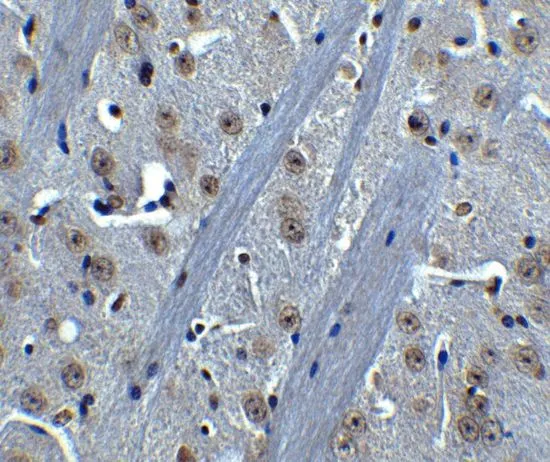
IHC-P analysis of mouse brain tissue using GTX31694 BTK antibody. Working concentration : 5 microg/ml
BTK antibody
GTX31694
ApplicationsImmunoFluorescence, Western Blot, ELISA, ImmunoCytoChemistry, ImmunoHistoChemistry, ImmunoHistoChemistry Paraffin
Product group Antibodies
ReactivityHuman, Mouse
TargetBTK
Overview
- SupplierGeneTex
- Product NameBTK antibody
- Delivery Days Customer9
- Application Supplier NoteWB: 0.5 - 2 microg/mL. ICC/IF: 10 microg/mL. IHC-P: 5 microg/mL. *Optimal dilutions/concentrations should be determined by the researcher.Not tested in other applications.
- ApplicationsImmunoFluorescence, Western Blot, ELISA, ImmunoCytoChemistry, ImmunoHistoChemistry, ImmunoHistoChemistry Paraffin
- CertificationResearch Use Only
- ClonalityPolyclonal
- Concentration1 mg/ml
- ConjugateUnconjugated
- Gene ID695
- Target nameBTK
- Target descriptionBruton tyrosine kinase
- Target synonymsAGMX1, AT, ATK, BPK, IGHD3, IMD1, PSCTK1, XLA, tyrosine-protein kinase BTK, B-cell progenitor kinase, Bruton agammaglobulinemia tyrosine kinase, Bruton's tyrosine kinase, agammaglobulinaemia tyrosine kinase, dominant-negative kinase-deficient Brutons tyrosine kinase
- HostRabbit
- IsotypeIgG
- Protein IDQ06187
- Protein NameTyrosine-protein kinase BTK
- Scientific DescriptionThe protein encoded by this gene plays a crucial role in B-cell development. Mutations in this gene cause X-linked agammaglobulinemia type 1, which is an immunodeficiency characterized by the failure to produce mature B lymphocytes, and associated with a failure of Ig heavy chain rearrangement. Alternative splicing results in multiple transcript variants encoding different isoforms. [provided by RefSeq, Dec 2013]
- ReactivityHuman, Mouse
- Storage Instruction-20°C or -80°C,2°C to 8°C
- UNSPSC12352203

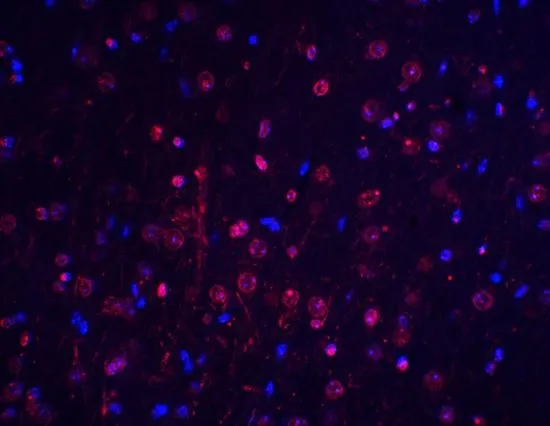
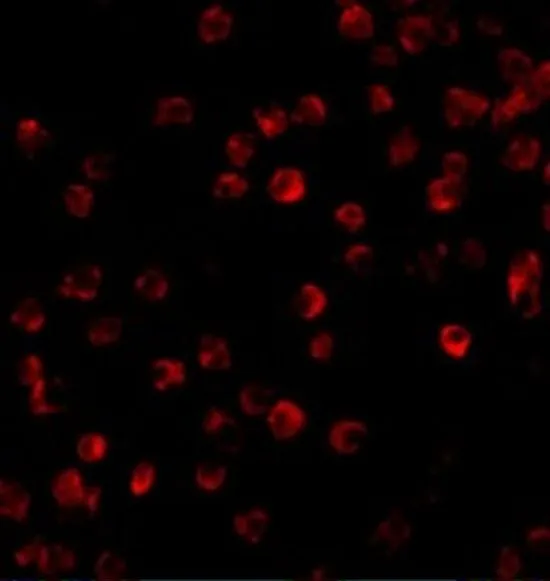
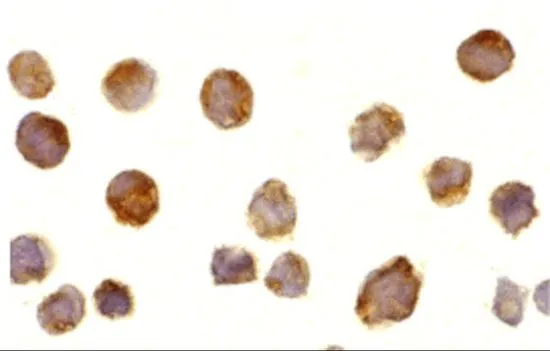
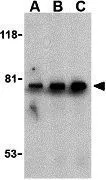
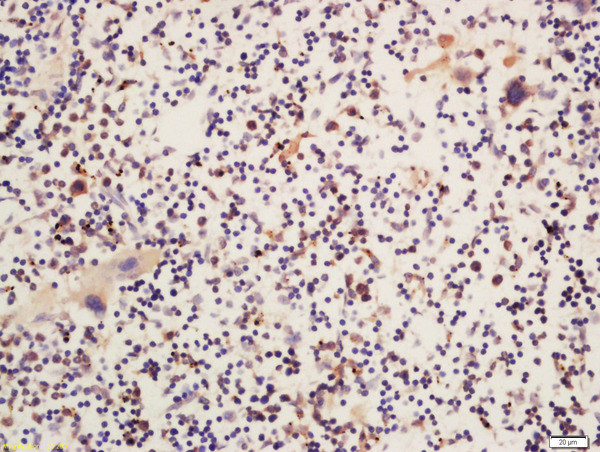

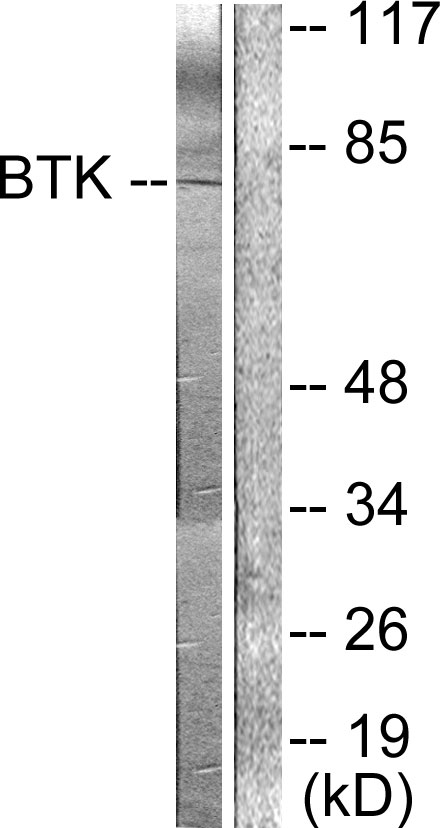

![ICC/IF analysis of COS7 cells transiently transfected with BTK plasmid using GTX84785 BTK antibody [10E10].](https://www.genetex.com/upload/website/prouct_img/normal/GTX84785/GTX84785_1223_ICCIF_w_23061420_255.webp)
![ICC/IF analysis of COS7 cells transiently transfected with BTK plasmid using GTX84789 BTK antibody [3A2].](https://www.genetex.com/upload/website/prouct_img/normal/GTX84789/GTX84789_1225_ICCIF_w_23061420_497.webp)
![ICC/IF analysis of COS7 cells transiently transfected with BTK plasmid using GTX84792 BTK antibody [12H4].](https://www.genetex.com/upload/website/prouct_img/normal/GTX84792/GTX84792_1228_ICCIF_w_23061420_579.webp)